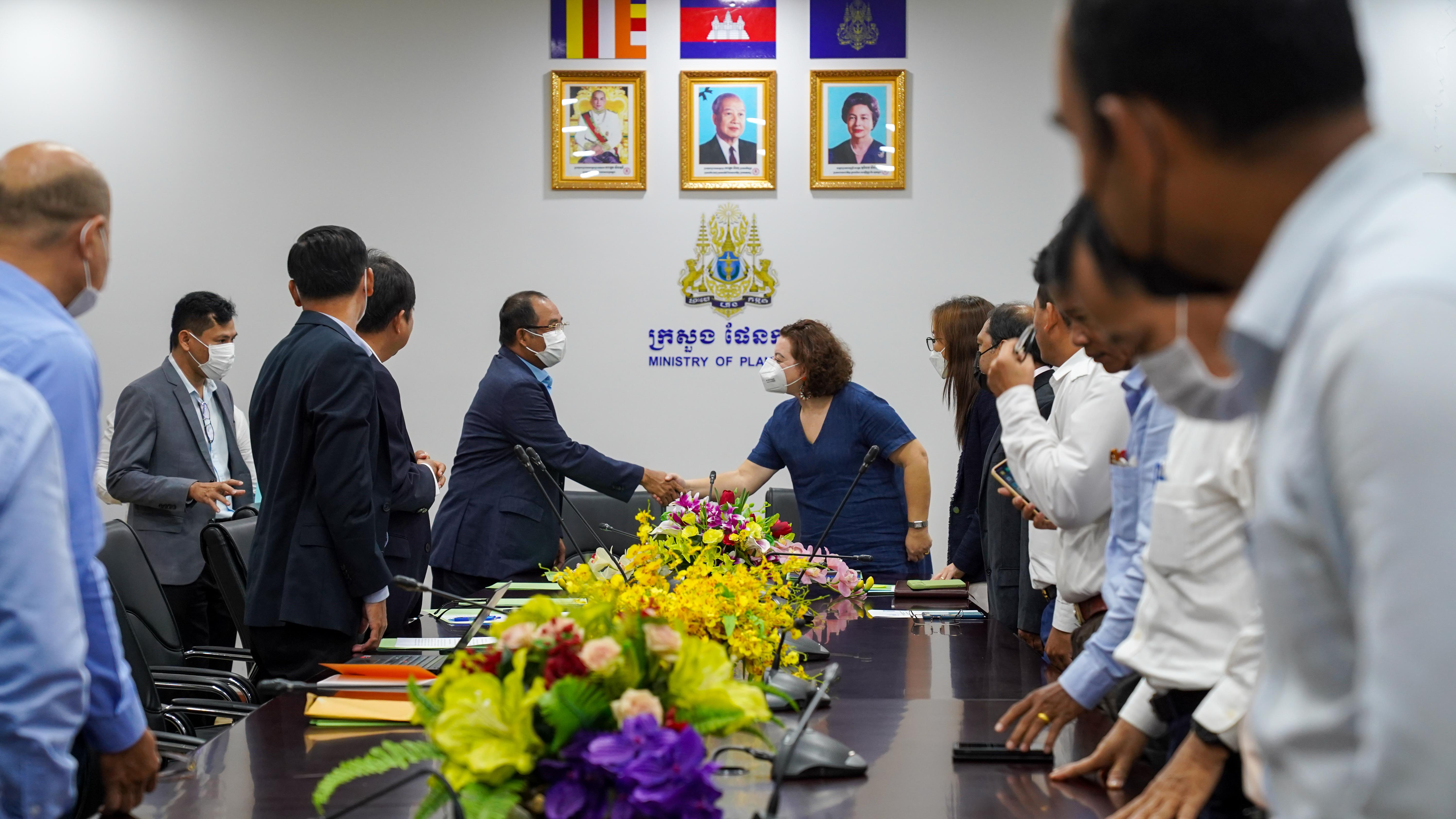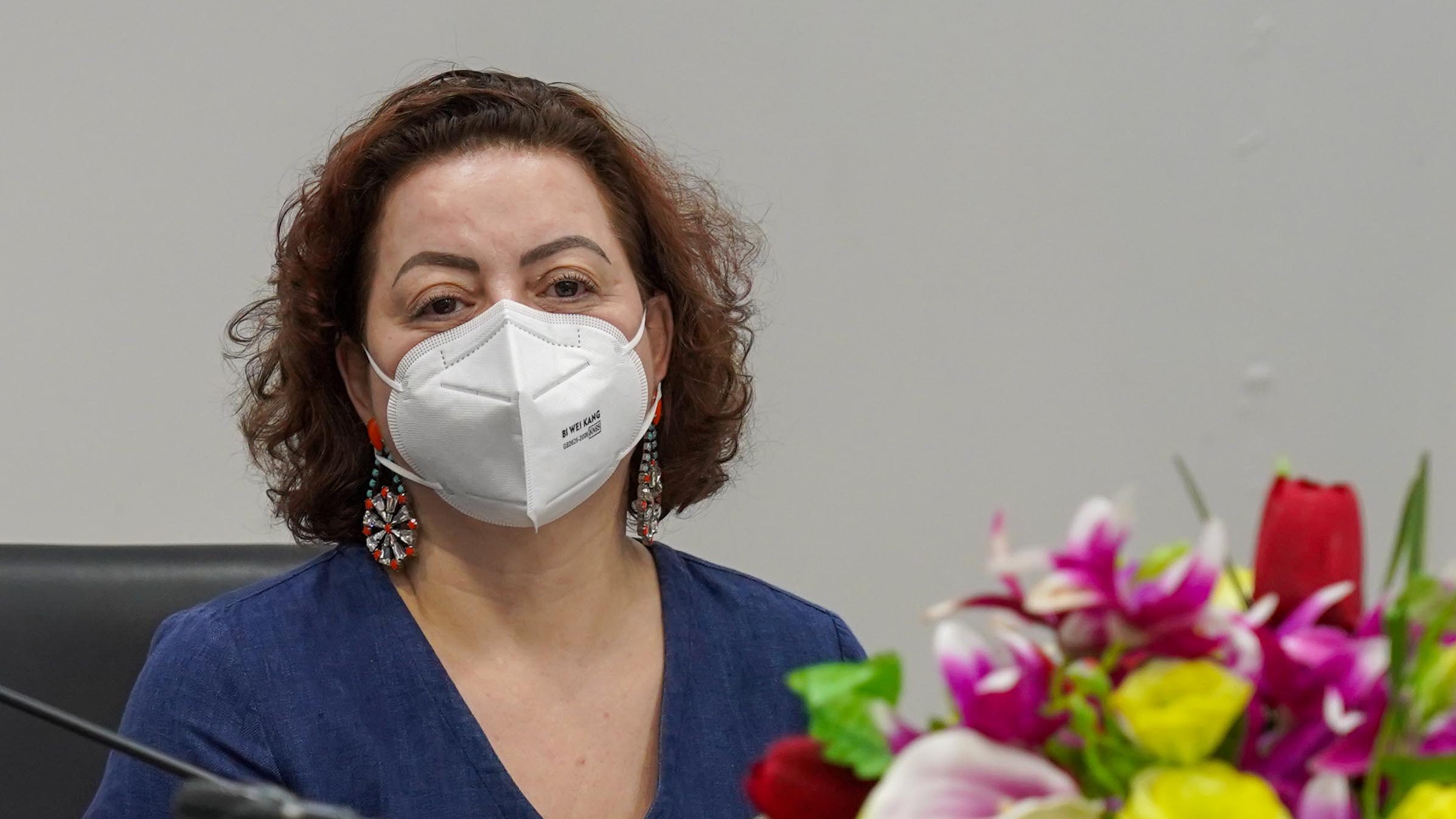Remarks by Ms. Alissar Chaker, UNDP Resident Representative
Training on Application of Supply-Use Tables, Input-Output Tables and Social Accounting Matrix
October 21, 2022

H.E. Rin Virak, Permanent Secretary of State, Ministry of Planning (MoP),
H.E. Keo Chettra, Director of National Accounts Department, National Institute of Statistics (NIS), MoP,
Excellencies Secretary of State, Under Secretary of State, Director General and Deputy Director General,
Dr. Bazlul Khondker, UNDP Senior Macroeconomic Consultant,
Esteemed participants (29 trainees) from the Department of National Accounts, Department of Social Statistics and Department of Economic Statistics of the National Institute of Statistics,
Ladies and gentlemen,
Good morning!
Allow me first to congratulate all those who were involved in the design, planning, and delivery of the course and the participants for successfully completing their learning. Special thanks go to H.E. Keo Chettra’s for his leadership and to Dr. Bazlul Khondker, who has invested his more than 20 years’ experience in constructing Input-Output Matrix and Social Accounting Matrix in the process.
The size of the Cambodian economy has increased since the latest re-basing of the GDP to the 2014 base year. The surge in technology and the increase in value-addition, among others, accelerated significantly economic development. To capture this change in economic production and re-calibrate the relative importance of different economic sectors to inform fit-to-purpose policy and decision-making, the Royal Government is considering to re-base the GDP in 2023 based on international standards.
This training is part of the ongoing collaboration between UNDP and MOP, namely NIS, for improving Cambodia’s System of National Accounts. This entails upgrading and expanding existing Supply-Use Tables and Social Accounting Matrix to include additional aspects of economic production that will enable and support the upcoming GDP rebasing and alignment with the recommendations of International Standards applicable to the System of National Accounts. This will also contribute to the establishment of Cambodia’s System of Environmental-Economic Accounting (SEEA) which was the topic of the latest training that some of the participants here today had joined.

Based on lessons learned during COVID-19, Cambodia has a unique opportunity to redefine its drivers of economic growth. The natural environment is essential for economic growth. Natural resources are inputs for production in many sectors, while production and consumption also lead to pollution and other pressures on the environment. Poor environmental quality affects economic growth and wellbeing by lowering the quantity and quality of resources or due to health impacts. I also hope that soon Cambodia can integrate environmental accounts to measure the condition of the environment, the contribution of the environment to the economy and the impact of the economy on the environment through the development of a System for Environmental and Economic Accounting, managing as such all the country’s assets, risks and opportunities for a more sustainable and resilient socioeconomic development.
In relation to environmental data, UNDP supports the Ministry of Environment to develop the Cambodia Environment Information System (CEMIS) to strengthen data management and reporting to promote environmental protection, natural resources management, biodiversity conservation and sustainable development. Thus, I strongly encourage collaboration across line ministries to update each other and share data.
Excellencies, ladies and gentlemen,
Building institutional and individual capacity and strengthening access to quality data are important pillars of the UNDP mandate. Having good and accessible data generate stronger evidence for informing government policies and promoting innovative measures to accelerate sustainable and inclusive development, agile monitoring of progress, and transparency.
UNDP supports the Ministry of Planning in generating data for policy and decision- making in various form, namely:
- Supporting the recalibration of IDPoor targeting in collaboration with the World Bank and GIZ; and the improvement of the IDPoor complaint mechanism for collecting input to enhance the quality of the service;
- Supporting the development of a National Multidimensional Vulnerability Index (MVI) to measure progress beyond income and inform fit-for-purpose and inclusive policies;
- Conducting a Mid-Term Review of the National Strategic Development Plan to evaluate progress made and providing strategic recommendations for adjusting data collection and implementation of the plan for the remaining term of the NSDP 2019-2023;
- Developing a harmonized mechanism for data collection and monitoring of Cambodia Sustainable Development Goals (CSDGs) progress; and
- Supporting the Royal Government, with other UN agencies, in data collection and analysis for conducting the Voluntary National Review (VNR) 2023 on the national implementation of the 2030 agenda to be presented at the 2023 session of the High-Level Political Forum on Sustainable Development, in New York.
UNDP is committed developing institutional and individual capacities and systems for producing both traditional and innovative quality data and strengthening reporting mechanisms to provide planners and policymakers with up-to-date information to advance integrated development solutions to accelerate the achievement of the Sustainable Development Goals (SDGs) and Cambodia’s development ambitions.
Thank you for your active participation!

 Locations
Locations